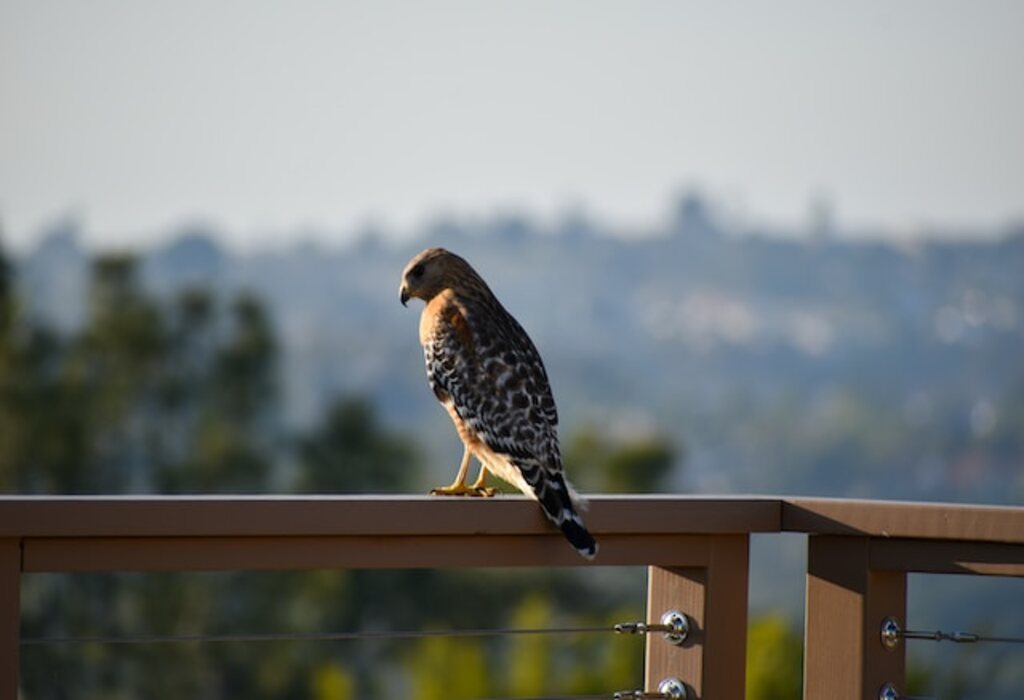The world of nature is full of surprises, and the behaviors of different animals often leave us amazed and intrigued. One such instance is the interaction between hawks and scorpions.
While hawks are known for their carnivorous diet, the question remains: do hawks eat scorpions?
This article aims to explore the hunting habits of hawks, examine rare instances of hawks consuming scorpions, and analyze the nutritional value of scorpions for hawks.
Hawks are raptors known for their predatory instincts and exceptional hunting skills. They are carnivores and feed on a variety of prey, including small mammals, birds, reptiles, and insects.
Their sharp talons and beaks enable them to catch and kill prey with precision and efficiency.
However, scorpions, with their venomous stingers and tough exoskeletons, are not typical prey for hawks.
This article will delve into the interesting relationship between hawks and scorpions and explore the reasons why hawks may or may not consume scorpions as part of their diet.
Table of Contents
- 1 Key Takeaways
- 2 Overview of Hawks’ Hunting Habits
- 3 Do Hawks Eat Scorpions
- 4 Rare Instances of Hawks Eating Scorpions
- 5 Hawk and Scorpion Interactions
- 6 Nutritional Value of Scorpions
- 7 Adaptations for Scorpion Consumption
- 8 Other Predators of Scorpions
- 9 Impact of Scorpion Consumption on Hawks
- 10 Importance of Hawks in Ecosystems
- 11 Frequently Asked Questions
- 11.1 What other prey do hawks typically hunt besides scorpions?
- 11.2 How do hawks locate scorpions in their environment?
- 11.3 What is the lifespan of a typical hawk and how does this affect their hunting habits?
- 11.4 Are all species of hawks equally likely to consume scorpions or are there certain species that have a greater affinity for them?
- 11.5 How do scorpions defend themselves against hawk predators and what adaptations have they developed to survive in their environment?
- 12 Conclusion
- 13 Author
Key Takeaways
- Hawks are carnivorous birds that exhibit a diverse range of hunting habits and prefer small to medium-sized prey such as insects, rodents, reptiles, and birds.
- While scorpions are not typical prey for hawks due to their venomous stingers and tough exoskeletons, rare instances of hawks eating scorpions have been observed and reported in the wild.
- Hawks have a unique predation pattern when hunting scorpions, using sharp talons to grasp the scorpion and avoid being stung, and often hunt scorpions during the day when they are most active.
- The impact of scorpion consumption on hawks is still not fully understood, but it may alter their hunting behavior and have a negative impact on their digestion due to scorpion venom.
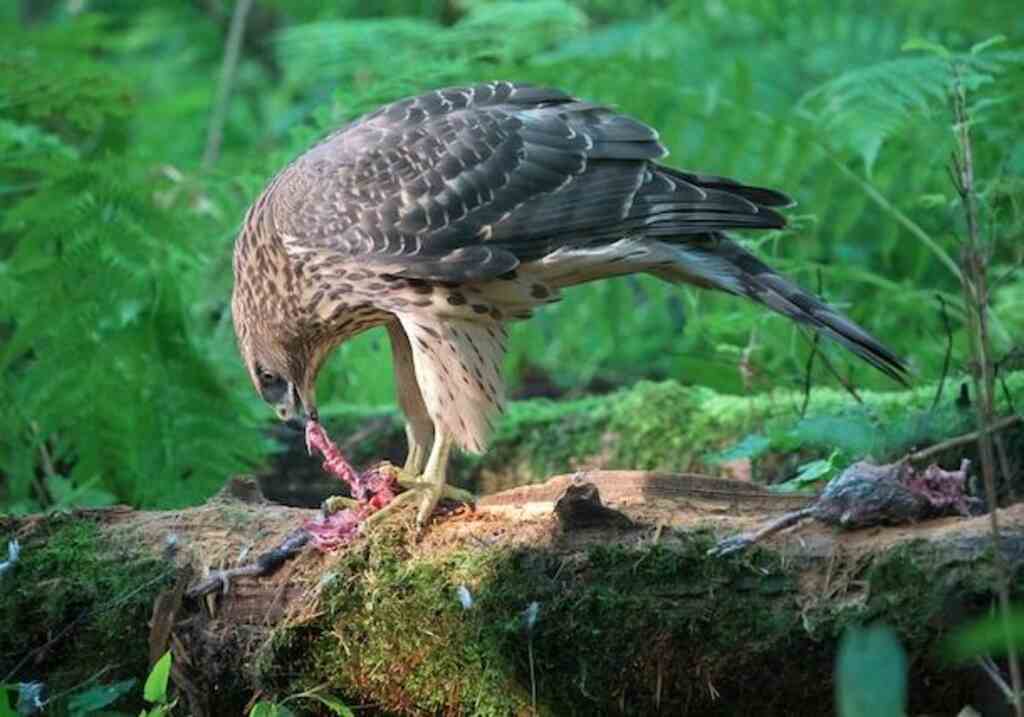
Overview of Hawks’ Hunting Habits
Hawks, as predatory birds, exhibit a diverse range of hunting habits that are primarily determined by their species, size, and habitat, and often involve a combination of aerial pursuit, ambush, and scavenging.
Hawks’ hunting techniques and prey selection vary depending on the species, but generally, they prefer small to medium-sized prey such as insects, rodents, reptiles, and birds.
Environmental factors such as weather, time of day, and prey availability also affect hawks’ hunting behavior.
While hawks are not known to actively seek out scorpions as prey, there are rare instances where hawks have been observed eating scorpions, likely due to the scarcity of other food sources.
Do Hawks Eat Scorpions
Yes, hawks do eat scorpions. Hawks are opportunistic predators and have been known to consume scorpions as part of their diet.
Scorpions provide a good source of protein for hawks and can be found in their natural habitats.
However, the consumption of scorpions may vary among different hawk species and their preferred prey items.
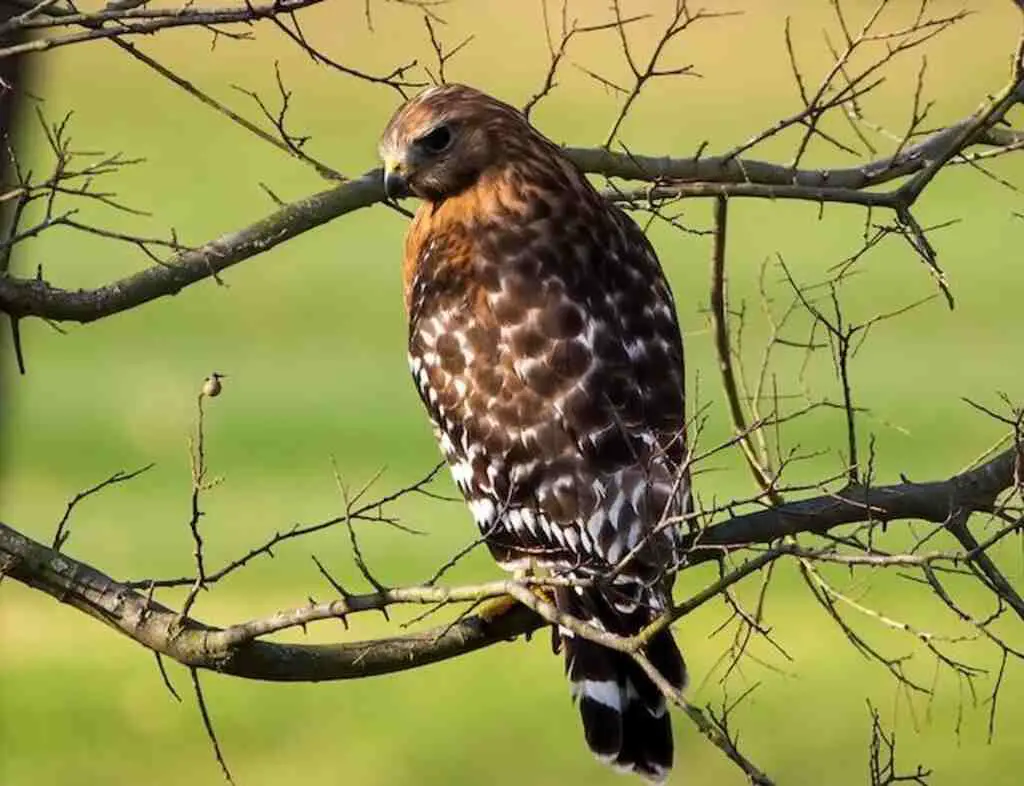
Rare Instances of Hawks Eating Scorpions
Rare instances of hawks eating scorpions have been observed and reported in the wild.
Although scorpions are not a typical prey item for hawks, some species have been known to consume them.
The reasons for this occurrence are not entirely clear, but it is suggested that the hawks may be consuming scorpions for their nutritional value or as a result of opportunistic feeding behaviors.
Observations and Reports
Based on documented observations and reports, it has been noted that certain species of hawks have been seen consuming scorpions as part of their diet.
Through observing the behavior of these hawks, it has been noted that they have a unique predation pattern when hunting scorpions.
Here are four observations and reports that have been made regarding hawks consuming scorpions:
1) Hawks will often hunt scorpions during the day when they are most active,
2) They use their sharp talons to grasp the scorpion and avoid being stung,
3) Before consuming the scorpion, they will often remove the stinger by rubbing it against a hard surface, and
4) Hawks have been observed consuming scorpions from various habitats including deserts, grasslands, and forests.
While this behavior may seem unusual, it is important to understand the reasons for its occurrence.
Reasons for Occurrence
Predation patterns of certain raptors consuming arachnids exemplify the specialized adaptations and ecological interactions that shape the diversity of animal diets in ecosystems.
Hawks are known to feed on a wide range of prey, including scorpions.
The occurrence of this behavior can be attributed to the ecological significance of scorpions in the food chain and the behavioral patterns of hawks.
Scorpions are important predators in their respective habitats, and their consumption by hawks can have a significant impact on their populations.
Hawks have adapted to these interactions by developing specialized hunting techniques, such as swooping down on scorpions from above to avoid their stingers.
This demonstrates the intricate relationships between predators and prey in ecosystems.
An example of the behavioral patterns of hawks can be illustrated in a table that compares the hunting methods of different raptor species when consuming scorpions.
Hawk Hunting Methods for Consuming Scorpions:
| Raptor Species | Hunting Method for Scorpions |
|---|---|
| Red-tailed Hawk | Soaring and scanning the ground, then swooping down to catch scorpions with talons |
| Cooper’s Hawk | Perching near scorpion habitats and ambushing them with quick, agile strikes |
| Swainson’s Hawk | Utilizing a combination of soaring and ground hunting, actively searching for scorpions in open areas |
| Ferruginous Hawk | Patrolling low-altitude areas, using their keen eyesight to spot scorpions and diving down to catch them |
| Rough-legged Hawk | Hovering over scorpion-infested areas, then descending rapidly to snatch them from the ground |
This table demonstrates the distinct hunting techniques employed by different hawk species when consuming scorpions.
Understanding the reasons for the occurrence of hawk and scorpion interactions can provide insights into the complex dynamics of ecosystems and the important role that predators play in maintaining their balance.
The subsequent section will explore these interactions in more detail.
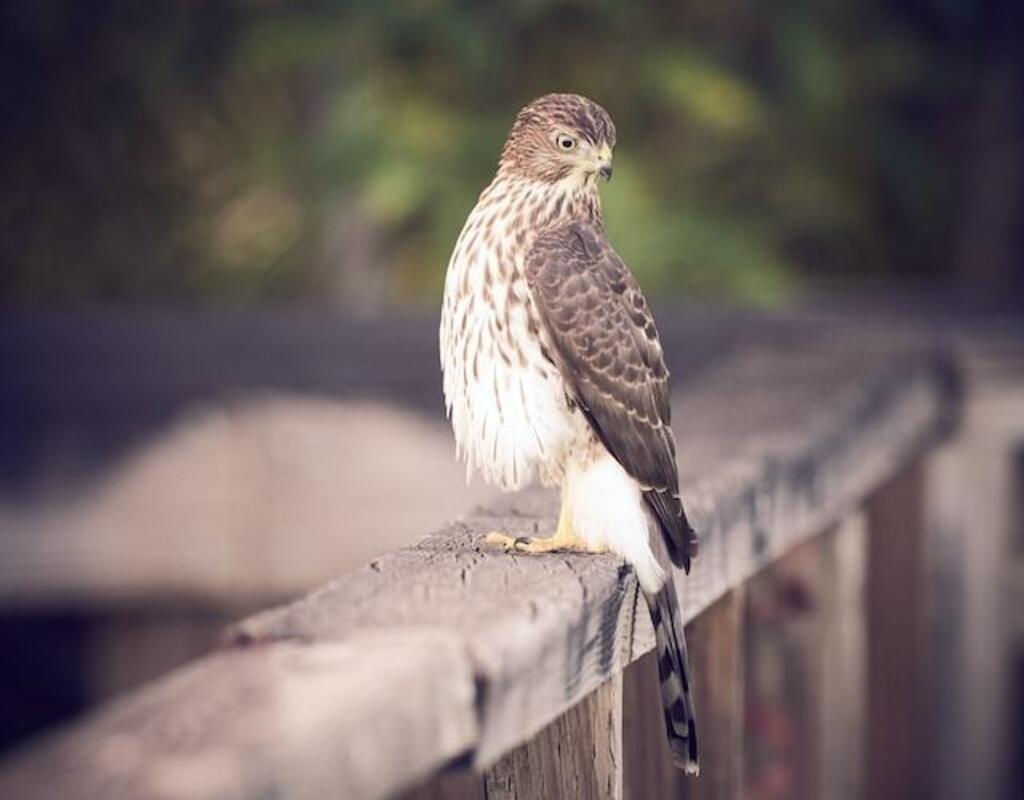
Hawk and Scorpion Interactions
Interactions between hawks and scorpions are fascinating due to the unique adaptations and behaviors of each species.
Hawks have developed various hunting strategies to catch prey, including scorpions, which possess venomous stingers.
One strategy is to swoop down from above and grab the scorpion with their talons, avoiding the stinger. Another is to use their sharp beaks to crush the scorpion’s exoskeleton, rendering the stinger useless.
Scorpions, on the other hand, have developed resistance to their own venom, allowing them to survive and potentially sting their predators, including hawks.
This complex predator-prey interaction highlights the coevolutionary history of these species and the importance of adaptation for survival.
Understanding these interactions can shed light on the ecological dynamics of ecosystems.
As we explore the nutritional value of scorpions, it is important to consider the role they play in the diets of predators like hawks.
Nutritional Value of Scorpions
Hawks and scorpions engage in complex interactions in the wild, with hawks preying on scorpions as part of their diet. As such, it is important to understand the nutritional value of scorpions as food.
Scorpions are known to be rich in protein and low in fat, making them a valuable source of nutrition for animals that consume them.
In fact, scorpions are considered a delicacy in some cultures, and have been consumed by humans for centuries.
The nutritional benefits of scorpion consumption have been well documented, with studies showing that they are high in essential amino acids, vitamins, and minerals.
For example, scorpions contain high levels of potassium, calcium, and magnesium, which are essential for muscle and bone health.
Additionally, the venom of scorpions has been found to have medicinal properties, which may have potential applications in treating a variety of health conditions.
With these benefits in mind, it is clear that scorpions play an important role in the diets of many animals, including hawks.
Understanding the nutritional value of scorpions is crucial for understanding the adaptations that animals have developed for consuming them.
| Nutritional Component | Amount per 100g |
|---|---|
| Protein | 53g |
| Fat | 25g |
| Carbohydrates | 1g |
| Fiber | 0g |
| Calories | 370 |
| Vitamin B12 | 2.1μg |
| Iron | 5.9mg |
| Zinc | 3.5mg |
| Calcium | 68mg |
| Magnesium | 33mg |
Please note that the nutritional values provided above are approximate and can vary depending on the specific species of scorpion.
Adaptations for Scorpion Consumption
Scorpions have been found to consume their own species, with up to 25% of scorpion diet consisting of conspecifics.
This dietary adaptation requires specialized mechanisms for prey capture and handling, including venomous stingers and strong pedipalps for grasping and manipulating prey.
Predatory birds such as hawks have also adapted to consume scorpions, with some species possessing long beaks for probing crevices and powerful talons for immobilizing prey.
Additionally, hawks have been observed dropping scorpions onto hard surfaces to break open their exoskeletons and make them easier to consume.
These adaptations demonstrate the evolutionary arms race between predators and prey, with each species developing unique strategies to gain an advantage in the struggle for survival.
Other predators of scorpions, such as rodents and reptiles, have also developed specialized adaptations for capturing and consuming these arachnids.
Other Predators of Scorpions
Various animals have been observed regularly consuming scorpions, including certain species of birds, mammals, and reptiles.
While hawks are known to occasionally consume scorpions, their consumption is not as frequent as other predators such as shrews, hedgehogs, and even other scorpions.
Studying the feeding behaviors of these animals can provide insight into the adaptations and strategies needed to survive in scorpion-rich environments.
Animals That Regularly Consume Scorpions
Many predatory animals, including birds, reptiles, and mammals, have developed adaptations to consume scorpions as a regular part of their diet.
Some of the most common scorpion predators include hedgehogs, mongoose, meerkats, and a variety of bird species such as owls, eagles, and vultures.
Insects such as centipedes and spiders also consume scorpions as a regular part of their diet.
The ecological significance of these predators cannot be overstated, as they help to regulate the scorpion population in their respective habitats.
For example, hedgehogs play a vital role in controlling scorpion populations in arid and semi-arid regions. They are able to consume scorpions with ease due to their immunity to their venom.
In contrast, birds such as hawks are not known to consume scorpions as regularly as other predators.
However, they have been observed consuming scorpions on occasion, particularly when other prey is scarce.
Comparison to Hawks
In comparison to other predators, hawks have been observed consuming scorpions on rare occasions, similar to a needle in a haystack.
While hawks are known for their sharp talons and keen eyesight, they are not typically considered to be scorpion predators.
Eagles, on the other hand, have been observed preying on scorpions more frequently. This may be due to their larger size and strength, which allows them to overcome the scorpion’s defense mechanisms.
Scorpions are equipped with a venomous stinger and tough exoskeleton, which can make them difficult to consume for some predators.
However, eagles have been known to use their powerful beaks to crack open the scorpion’s exoskeleton and remove the stinger before consuming it.
The table below highlights the differences between hawks and eagles in terms of their scorpion consumption habits.
| Hawks | Eagles | |
|---|---|---|
| Frequency of scorpion consumption | Rare | More common |
| Ability to overcome scorpion defense mechanisms | Limited | Strong |
| Method of consumption | Typically use talons | Use beaks to crack open exoskeleton and remove stinger |
Understanding the differences between hawks and eagles in terms of their scorpion consumption habits can provide insight into the ways different predators have adapted to overcome the challenges of consuming these venomous arachnids.
However, the impact of scorpion consumption on hawks is still not fully understood and will be explored in the subsequent section.
Impact of Scorpion Consumption on Hawks
The potential influence of scorpion consumption on the behavior and physiology of hawks remains a topic of interest among researchers.
While it is known that hawks are skilled predators with a diverse diet, the specific effects of scorpion consumption on their digestive system and hunting behavior are less understood.
Some studies suggest that scorpion venom may have a negative impact on hawk digestion, while others propose that hawks may have developed adaptations to counteract these effects.
Furthermore, the consumption of scorpions may alter the hunting behavior of hawks, as they may need to adjust their hunting techniques to avoid being stung.
Understanding the impact of scorpion consumption on hawks is crucial in comprehending the role of these predators in ecosystems.
Hawks play an important role in controlling populations of small vertebrates and maintaining balance in food webs.
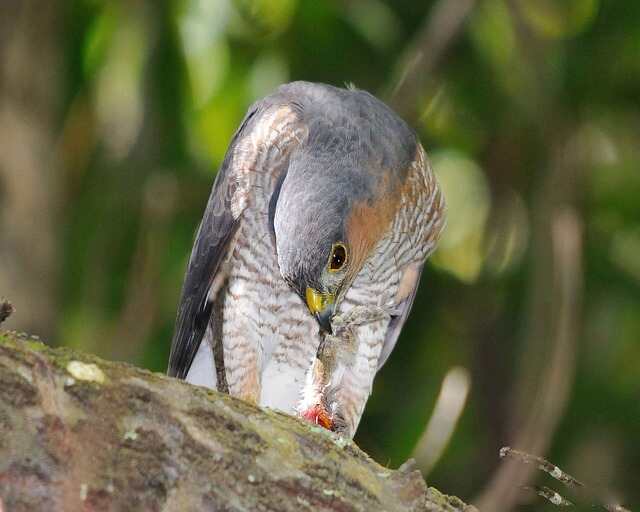
Importance of Hawks in Ecosystems
Hawks are essential players in the intricate web of ecosystems, acting as regulators of small vertebrate populations and maintaining equilibrium in the food chain.
They play a critical role in food webs, as they are at the top of the food chain and help control the populations of animals lower down.
As such, they are often referred to as keystone species, as their presence and behavior can have a significant impact on the entire ecosystem.
Additionally, hawks are important indicators of the health of ecosystems, as they are sensitive to changes in their environment and can provide valuable insights into conservation efforts.
Through their role as predators, hawks help to maintain the balance of the ecosystem and ensure that all species play their part in creating a harmonious melody.
Frequently Asked Questions
What other prey do hawks typically hunt besides scorpions?
Hawks typically hunt a variety of prey, including small mammals, birds, reptiles, and insects. Comparing diets, hawks tend to hunt smaller prey compared to eagles. Food availability plays a significant role in their hunting patterns, as hawks adjust their prey selection based on availability.
How do hawks locate scorpions in their environment?
Hawks use their exceptional vision to locate scorpions in their environment. Predation mechanisms and ecological significance of hawks and scorpions are influenced by their interactions and adaptations, including scorpion behavior and hawk vision.
What is the lifespan of a typical hawk and how does this affect their hunting habits?
The lifespan of hawks varies depending on the species and environmental factors. Older hawks tend to exhibit changes in hunting behavior due to decreased mobility and prey availability. This can lead to a shift towards targeting smaller prey.
Are all species of hawks equally likely to consume scorpions or are there certain species that have a greater affinity for them?
Different species of hawks exhibit varying feeding habits, and their dietary preferences may include scorpions. However, the extent to which they consume scorpions may depend on factors such as geographical location and prey availability.
How do scorpions defend themselves against hawk predators and what adaptations have they developed to survive in their environment?
Scorpions have evolved various defensive mechanisms against hawk predators, such as venomous stingers and tough exoskeletons. Hawks, in turn, have adapted to hunt scorpions by developing sharp talons and keen eyesight, showcasing predator-prey coevolution and ecological niche specialization.
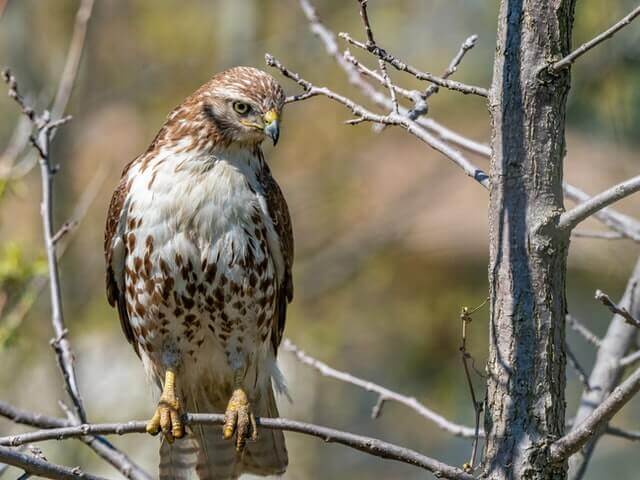
Conclusion
In conclusion, while hawks are known for their impressive hunting skills, it is rare for them to consume scorpions.
Scorpions are not a common prey item for hawks due to their venomous nature and tough exoskeletons.
However, there have been instances where hawks have been observed consuming scorpions, likely due to limited prey availability or opportunistic feeding behaviors.
It is important to note that scorpions do have nutritional value and are a significant food source for other predators such as spiders, birds, and mammals.
Some of these predators have even developed adaptations to protect themselves from scorpion venom, such as thick fur or feathers.
Overall, while hawks may not commonly feed on scorpions, they play a crucial role in maintaining ecosystem balance by controlling populations of other prey items.
Their hunting habits and behaviors provide valuable insights into the complex interactions between predators and prey in natural environments.
Studying these interactions can help us better understand and appreciate the intricacies of our natural world.
So, let us continue to admire these majestic birds of prey and the important role they play in our ecosystem.

